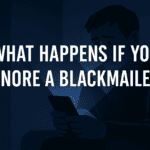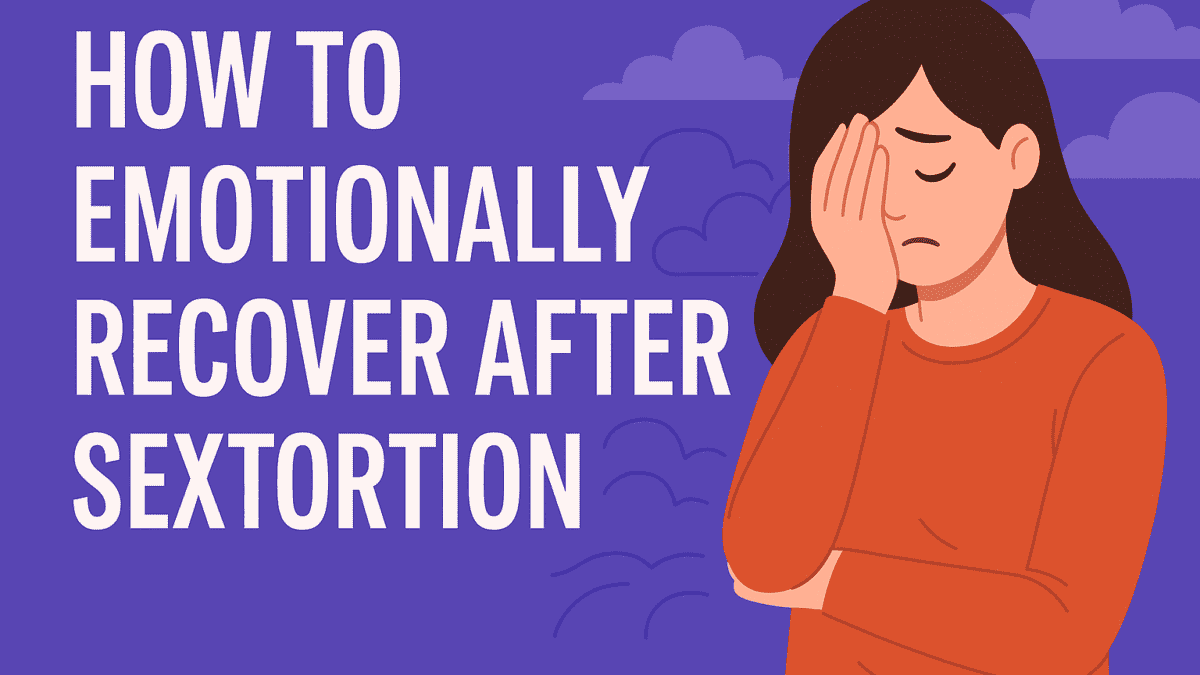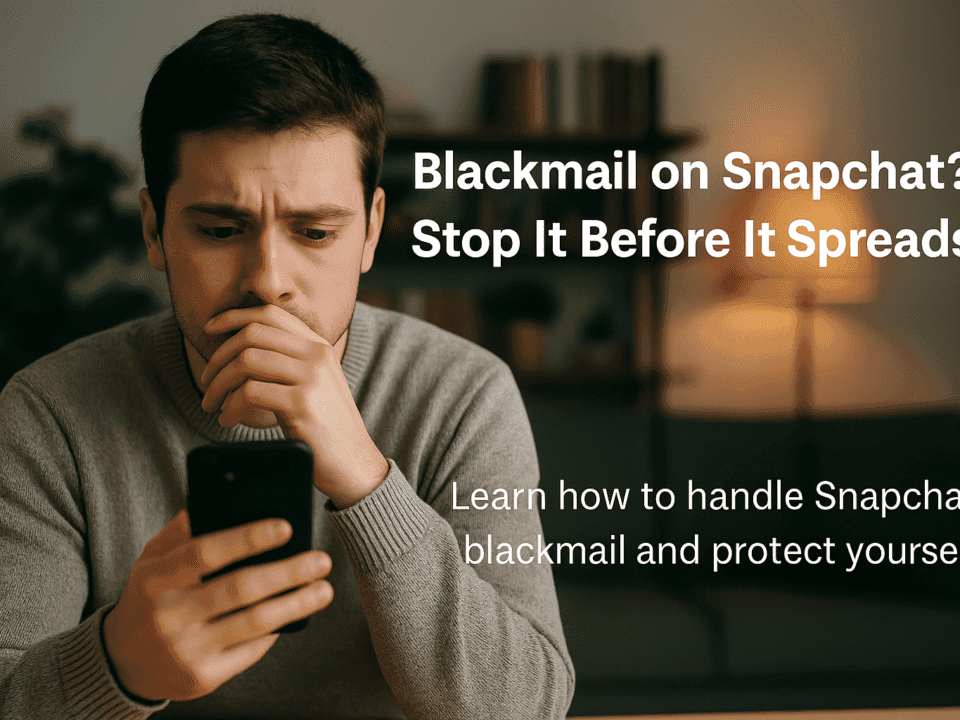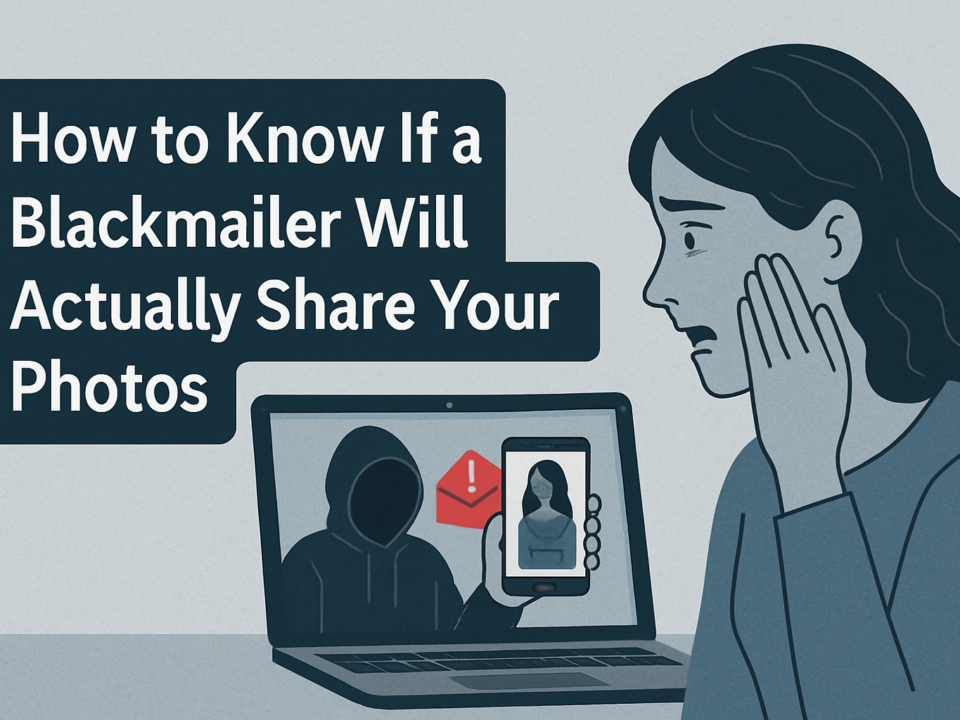
Deepfake Sextortion: How Parents Can Protect Teens in the Age of AI Threats
June 18, 2025
What Happens If You Ignore a Blackmailer?
June 19, 2025When It’s Over… But You Still Feel Broken
For many victims of sextortion, the threats may have stopped — the messages blocked, the accounts deleted. But emotionally? You’re still stuck in that moment of fear, shame, and panic.
This is the part no one talks about enough: what happens after.
The emotional impact of online blackmail can last long after the blackmailer disappears. And while it may feel isolating, what you’re experiencing is valid — and recoverable.
Here’s how to begin healing.
You’re Not Weak — You Were Targeted
The first step to recovery is understanding this: you didn’t “fall for” something. You were targeted.
Blackmailers are calculated. They exploit human vulnerability — curiosity, loneliness, or trust. That doesn’t make you foolish. It makes them cruel.
It’s okay to feel shocked, violated, or even ashamed. But none of those emotions mean you’re to blame.
Common Emotional Reactions After Sextortion
What you're feeling is part of a very real trauma response. Victims often report:
Panic attacks or ongoing anxiety
Fear of checking their phone
Trouble sleeping or eating
Obsessive thoughts: “What if they still leak it?”
Feeling “dirty” or violated
Isolation from friends or family
Shame, guilt, or even suicidal thoughts
You’re not alone in this. These are common — and they are treatable.
Give Yourself Permission to Heal
You might want to move on immediately, erase the memory, or pretend it didn’t happen. But emotional healing doesn’t work like that.
Here’s what does help:
1. Talk to Someone You Trust
Find one person — a friend, sibling, therapist — and share what happened. Say it out loud. You don’t need to tell everyone, but silence feeds shame. Speaking helps process.
2. Remind Yourself: It’s Over
If the blackmailer has been blocked or stopped contact, your brain might still be in “fight or flight” mode. That’s normal. But you can start retraining it to feel safe again.
Repeat to yourself:
“It’s over. I’m safe. I have control now.”
3. Reduce Digital Triggers
Change notification tones. Move apps to a different screen. Take a short social media break if needed. You’re not avoiding — you’re resetting.
Consider Talking to a Therapist
Therapists who specialize in trauma or digital abuse can help you:
Process fear and shame
Rebuild your confidence
Learn how to trust again
Cope with panic or spiraling thoughts
Online therapy platforms now make this accessible and private. Remember, therapy isn’t just for people in crisis — it’s for people who want to heal faster and healthier.
When to Seek Immediate Help
If you’ve had thoughts like:
“No one will understand”
“I can’t live with this shame”
“It’s not worth going on”
Please know these are temporary feelings, not permanent truths. There are people trained to help you through this — and people who’ve felt the same and recovered completely.
You can also reach out to services like Blackmail Shield if you need guidance on handling the blackmailer or securing your privacy.
What Recovery Actually Looks Like
It doesn’t mean “forgetting it ever happened.”
It means:
Being able to sleep without fear
Laughing again without guilt
Reclaiming your identity without shame
Knowing that one incident does not define you
Recovery is possible. For many, it becomes the beginning of something stronger — not weaker.
You’re Not Alone, and You’re Not Broken
This moment doesn’t define you.
Yes, someone tried to use fear to control you. But you're still here. Reading this. Looking for light. That’s strength.
You are not broken. You are healing.




